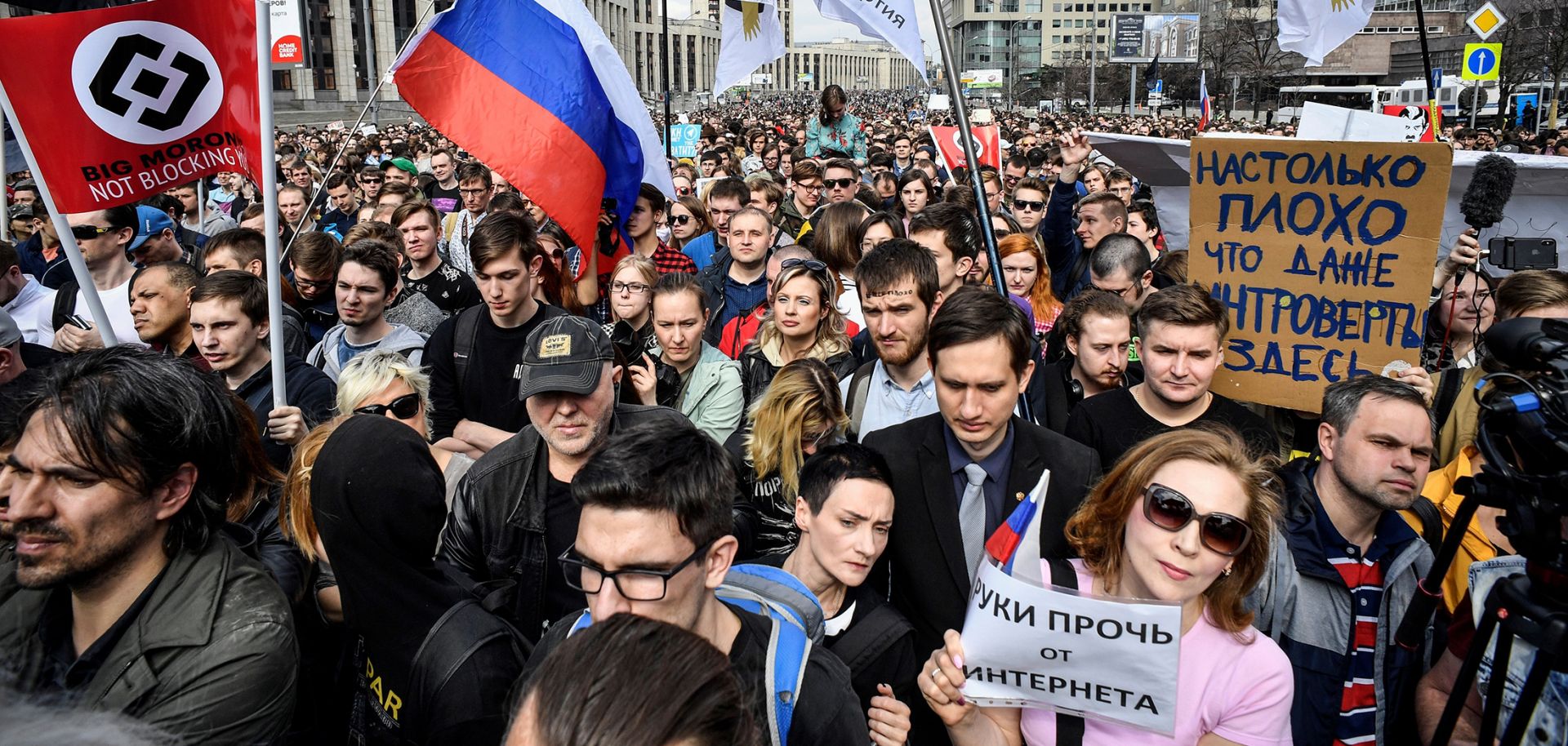ASSESSMENTS
Russia Plants Its Flag in the Digital Realm
Mar 19, 2019 | 18:34 GMT

People attend an opposition rally in central Moscow on April 30, 2018, to demand internet freedom in Russia. - Authorities tried to block access to the popular messaging app Telegram in the latest onslaught against dissent under Vladimir Putin. At least 8,000 people including top opposition leader Alexei Navalny turned up in the centre of the Russian capital, (Photo by Alexander NEMENOV / AFP) (Photo credit should read
(ALEXANDER NEMENOV/AFP/Getty Images)
Highlights
- As Russia continues to develop and foster what it terms "internet sovereignty," it could eventually adopt similar infrastructure and integrate with the networks of other like-minded countries, such as China.
- While the development of sovereign internet structures would restructure the global internet to some degree, it would not necessarily affect its functionality at the core level.
- However, the additional independence and protection that accompany sovereign internet structures could ignite more state competition in the digital world, hampering global efforts to establish global norms on cyberspace.
Subscribe Now
SubscribeAlready have an account?
